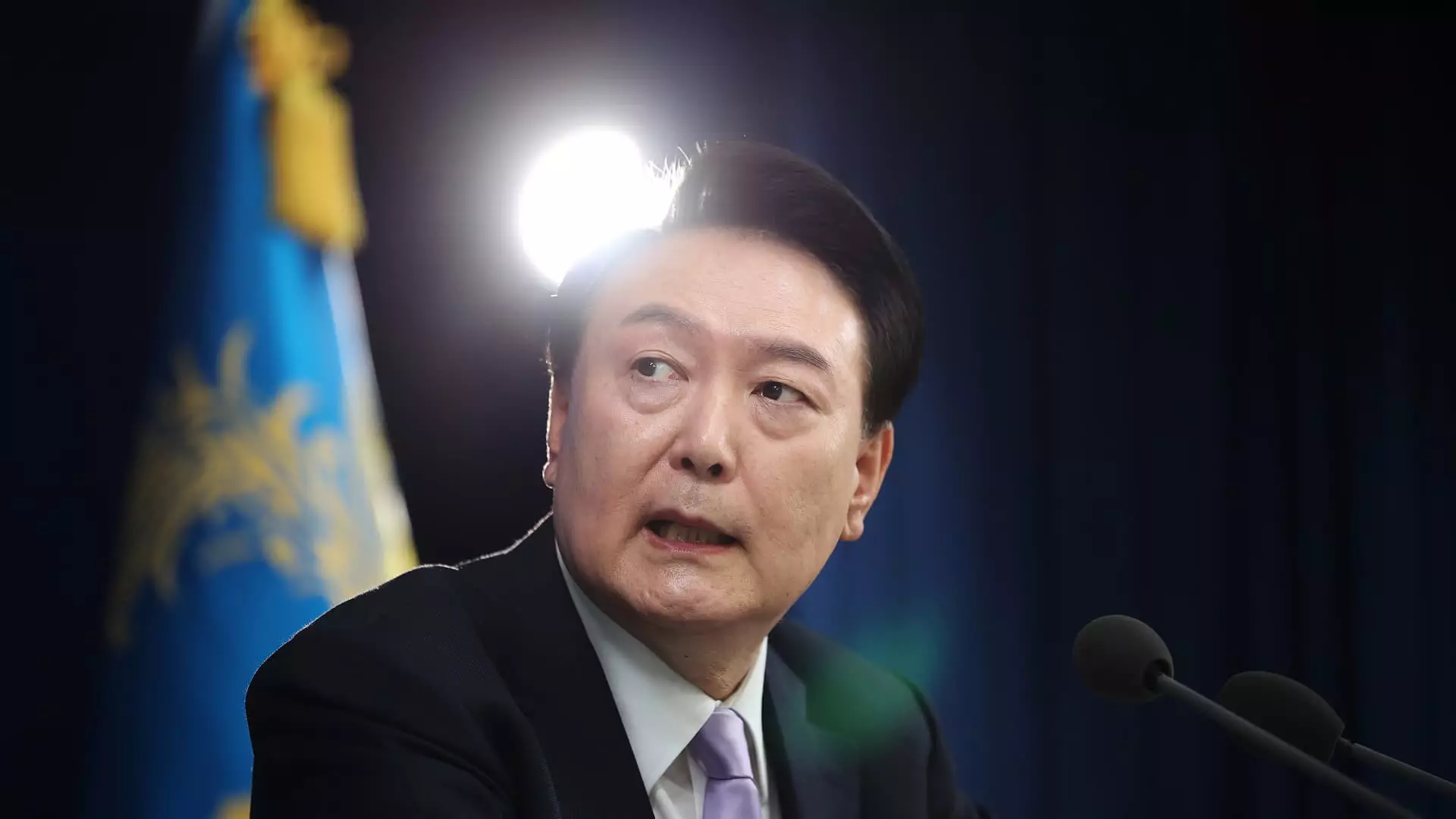The political landscape in South Korea has faced significant upheaval recently with President Yoon Suk Yeol embroiled in controversy following his brief attempt to impose martial law. This event, which marked a noteworthy deviation from the democratic norms of South Korea, has raised concerns domestically and internationally about the stability and integrity of the nation’s governance. The impeachment motion initiated by opposition parties, including the Democratic Party, highlighted a crucial moment in South Korea’s political history, where Yoon managed, albeit precariously, to evade immediate dismissal. The dynamics of such political maneuvers offer a deeper insight into the challenges facing contemporary South Korea.
On the Saturday of the vote, the failure of the impeachment motion against Yoon was largely due to the strategic withdrawal of the ruling party’s lawmakers, which rendered the quorum unattainable. This action underscores a significant aspect of South Korean politics wherein party loyalty and tactical retreats can sway legislative outcomes. The opposition, however, has signaled an intention to revisit the impeachment issue, illustrating the ongoing contention in the National Assembly. Had the motion passed, Yoon would have been stripped of his presidential powers, necessitating a swift presidential election within a stringent timeline of 60 days—a process that would have added to the already fraught political environment.
Understanding this turbulence necessitates a consideration of South Korea’s historical context with regard to presidential impeachments. The country is no stranger to such occurrences; both Roh Moo-hyun in 2004 and Park Geun-hye in 2016 faced similar fates, reflecting a pattern where political disputes can escalate to the level of constitutional crises. These incidents have carved a robust yet tumultuous narrative around the democratic process in South Korea, which now finds itself at another crossroads with Yoon’s presidency.
The political fracas surrounding Yoon also reverberated throughout South Korea’s financial markets. The Financial Services Commission’s readiness to inject substantial funds into stabilizing the stock and bond markets is indicative of the economic uncertainties stemming from political instability. Analysts, including Adarsh Sinha from BofA Securities, have expressed forecasted volatility for the Korean won, emphasizing that the currency’s bearish sentiment stems not solely from political unrest, but also from fundamental economic issues such as impending interest rate cuts. The interplay between politics and economics in South Korea highlights how closely intertwined these two arenas are and how political decisions can have far-ranging implications for economic stability.
In the aftermath of the tumultuous martial law initiative, President Yoon’s public address was marked by a tone of contrition. Apologizing to the citizens for the confusion and distress caused, Yoon’s public relations attempt can be interpreted as a strategic move to regain public trust amidst plummeting approval ratings, evidenced by a mere 19%. The mention of assurance against a second martial law attempt was pivotal, aiming to stabilize public sentiment and mitigate further unrest. However, the mere act of apologizing cannot erase the erosion of confidence that has been instigated by his administrations’ decisions.
Looking ahead, the political landscape in South Korea remains precarious. The potential for another push towards impeachment and the ongoing challenges posed by domestic opposition suggest that Yoon’s governance might face continued scrutiny. The support and trust from the populace will be critical in determining whether Yoon can navigate the rough waters of his presidency and steer back toward a politically stable and economically robust South Korea. The challenges he faces highlight a pivotal moment in the nation’s political journey, emphasizing the significance of democratic resilience in overcoming the vestiges of authoritarian pasts. The overarching narrative is one of vigilance, as South Koreans brace themselves for the next chapter in a history that has often tested their democratic resolve.


Leave a Reply